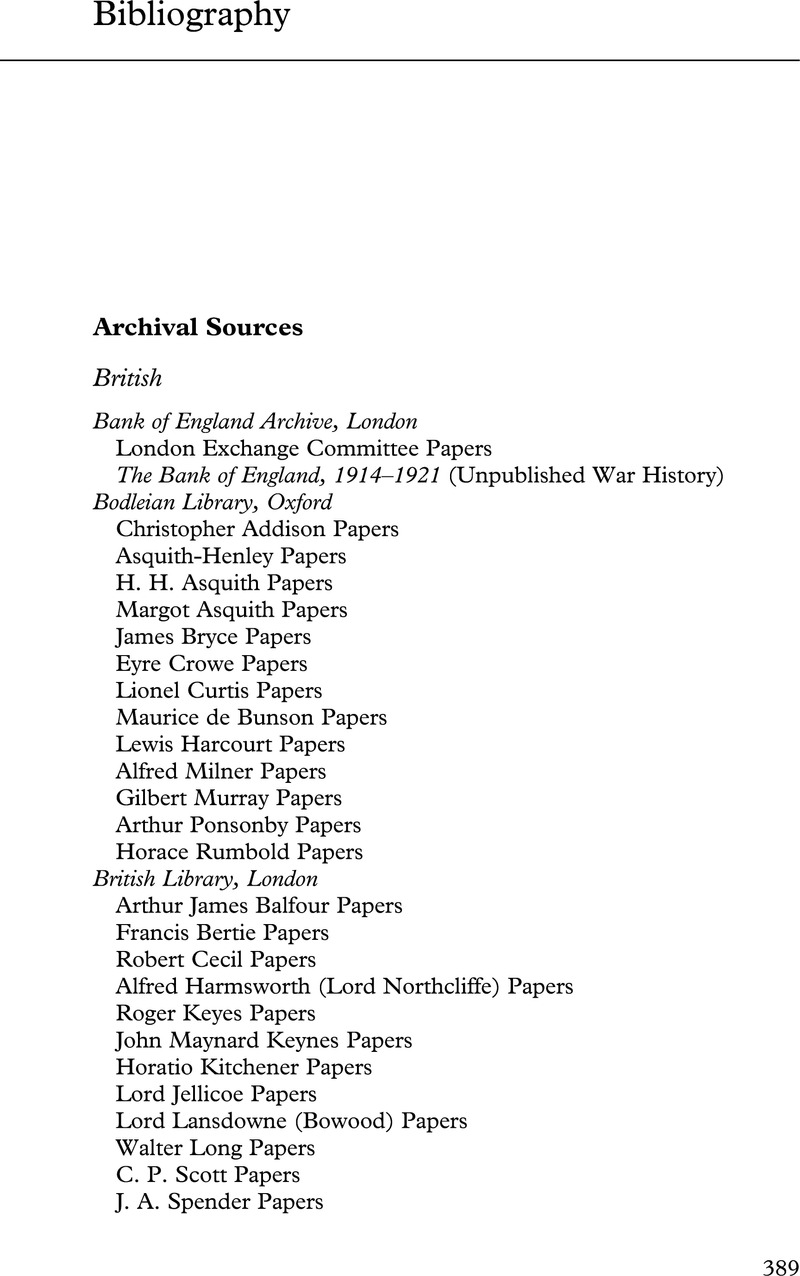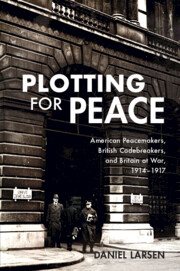Book contents
- Plotting for Peace
- Plotting for Peace
- Copyright page
- Dedication
- Contents
- Figures
- Map
- Graph and Table
- Dramatis Personae
- Preface
- Acknowledgements
- Maps
- Introduction
- 1 The First Year of War
- 2 Strategy
- 3 Negotiations
- 4 Deliberations
- 5 The Gamble
- 6 The Knock-Out Blow
- 7 The Fall of Asquith
- 8 Peace Moves
- 9 The Zimmermann Telegram and Wilson’s Move to War
- Conclusion
- Book part
- Notes
- Bibliography
- Index
- References
Bibliography
Published online by Cambridge University Press: 26 March 2021
- Plotting for Peace
- Plotting for Peace
- Copyright page
- Dedication
- Contents
- Figures
- Map
- Graph and Table
- Dramatis Personae
- Preface
- Acknowledgements
- Maps
- Introduction
- 1 The First Year of War
- 2 Strategy
- 3 Negotiations
- 4 Deliberations
- 5 The Gamble
- 6 The Knock-Out Blow
- 7 The Fall of Asquith
- 8 Peace Moves
- 9 The Zimmermann Telegram and Wilson’s Move to War
- Conclusion
- Book part
- Notes
- Bibliography
- Index
- References
Summary

- Type
- Chapter
- Information
- Plotting for PeaceAmerican Peacemakers, British Codebreakers, and Britain at War, 1914–1917, pp. 389 - 410Publisher: Cambridge University PressPrint publication year: 2021

